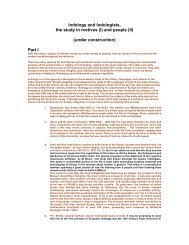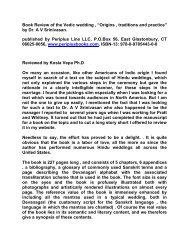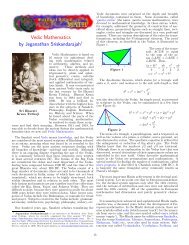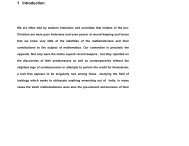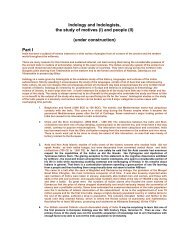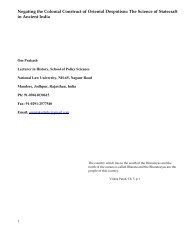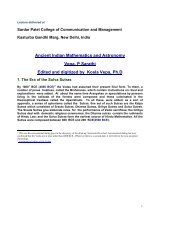The Dhaarmik Traditions - Indic Studies Foundation
The Dhaarmik Traditions - Indic Studies Foundation
The Dhaarmik Traditions - Indic Studies Foundation
Create successful ePaper yourself
Turn your PDF publications into a flip-book with our unique Google optimized e-Paper software.
(perceiving generality from a particular object), Jñanalakshana (when one sense organ<br />
can also perceive qualities not attributable to it, as when seeing a chili, one knows that<br />
it would be bitter or hot), and Yogaja (when certain human beings, from the power of<br />
Yoga, can perceive past, present and future and have supernatural abilities, either<br />
complete or some). Also, there are two modes or steps in perception, viz., Nirvikalpa,<br />
when one just perceives an object without being able to know its features, and<br />
Savikalpa, when one is able to clearly know an object. All laukika and alaukika<br />
pratyakshas are savikalpa. <strong>The</strong>re is yet another stage called Pratyabhijñā, when one is<br />
able to re-recognise something on the basis of memory.<br />
* Inference, called AnumAna, is one of the most important contributions of Nyaya. It<br />
can be of two types - inference for oneself (Svarthanumana, where one does not need<br />
any formal procedure, and at the most the last three of their 5 steps), and inference for<br />
others (Parathanumana, which requires a systematic methodology of 5 steps).<br />
Inference can also be classified into 3 types: Purvavat (infering an unperceived effect<br />
from a perceived cause), Sheshavat (infering an unperceived cause from a perceived<br />
effect) and Samanyatodrishta (when inference is not based on causation but on<br />
uniformity of co-existence). A detailed anaysis of error is also given, explaining when<br />
anumAna could be false.<br />
* Comparison or Analogy, which is the rough translation of Upamana. It is the<br />
57



